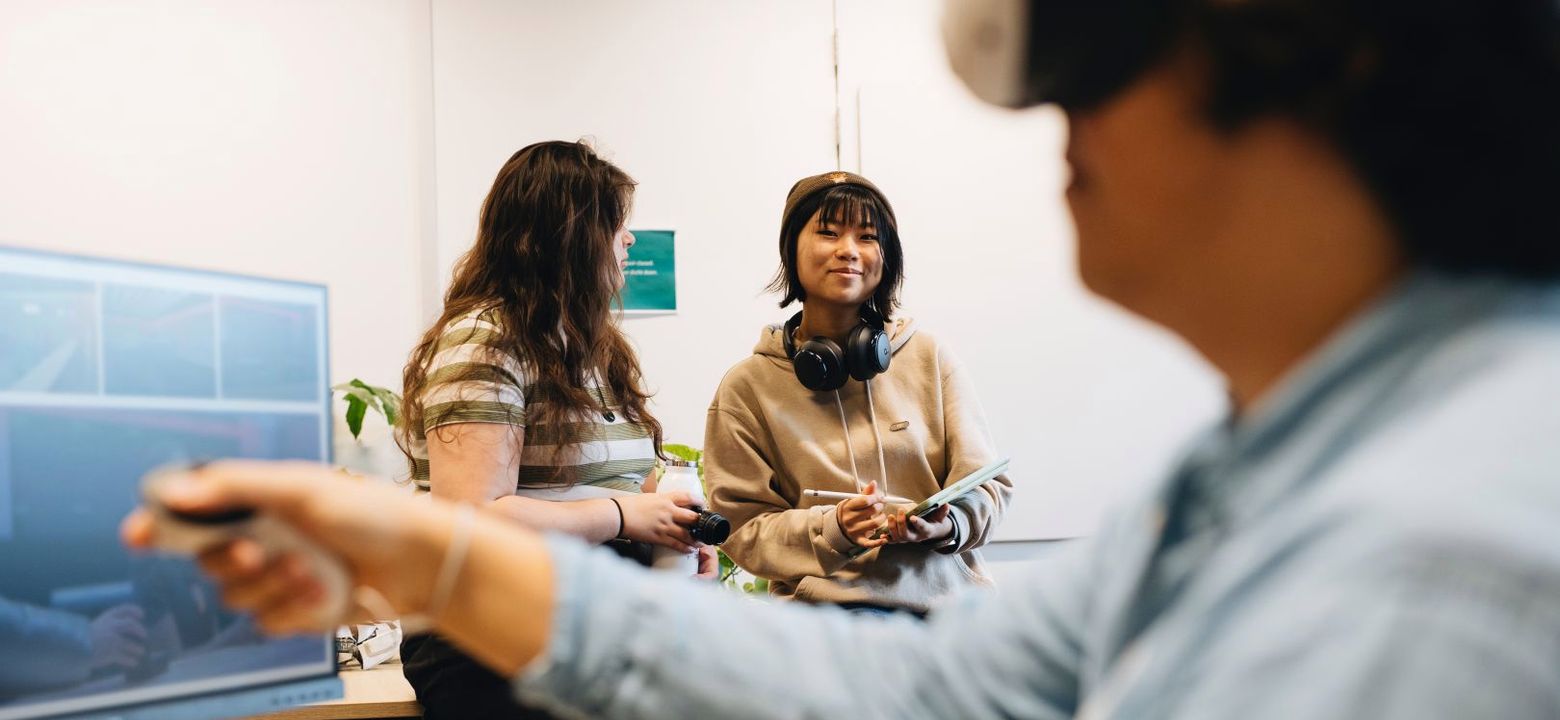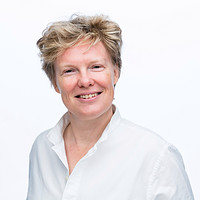From IT expert to XR specialist thanks to the new GRACE master’s programme: ‘Demand for these people will increase hugely in the coming years’
Professionals with an IT background with programmer skills can enrol in a new international master's programme starting in September 2025. The Gamified Reality Applications for Real-world Challenges and Experiences (GRACE) programme will offer 25 places to students every year. They will be trained to become creative and technically strong developers, focusing on social impact. “Society is desperately seeking people who can build virtual worlds, especially to strengthen medical and technical training programmes,” says Tim Roosen, Deputy Director of Joint Master’s Programme GRACE.
If you are training to become an anaesthetist for example, and it is proving difficult to find an operating theatre where you can practise under supervision on a regular basis. Or you work for an engineering company that maintains radar systems on ships, but it is almost impossible to get additional training at sea. Then in cases like these, practising in a virtual world using extended realty (XR) can be a good solution, providing a solid stepping stone into professional practice. In an XR lab, wearing VR glasses, with objects you can touch and grasp, it becomes possible to experience -in a lifelike way- how to correctly anaesthetise a virtual patient. Or how to perform precise maintenance operations in a submarine - under complex conditions - to ensure that all systems on board work perfectly.
Programmers wanted
XR offers practical solutions to continue training enough people to keep sectors such as healthcare and technology running, says Tim Roosen. However, this requires programmers who can build these XR applications. People with an IT background, preferably in combination with creative flair, or the curiosity to develop one. In short: professionals who want to specialise as an XR expert. “The coming years will see explosive growth in the demand for these XR specialists. Through GRACE, we are not only investing in technology, but also training people to build virtual worlds, with an eye for users, content and creating an impact,” this is why the new programme is so important, he explains. “Our students don't just build virtual worlds, they also understand how people learn, work, and collaborate in those worlds.”
Our students don't just build virtual worlds, they also understand how people learn, work, and collaborate in those worlds.
Virtual operating theatre
The example given of a virtual operating theatre where nurse anaesthetists can practise, was not arbitrary. Saxion is working with the University Medical Centre Leiden, and a number of medical schools and several other partners together in the DUTCH project: the development of a virtual working environment that supports students in practising medical procedures. “Not only at university level, but also for medical MBO and HBO students, it is extremely important that they get to practise in a hyper-realistic environment,” says Tim. “Also with a virtual human body, which reacts to the decisions they make. The days when students had lots of opportunities to watch in practice have passed, that time has become more limited nowadays.” Before these students enter the workplace and stand at a patient’s bed, they have already been able to practise for hours in an XR lab. Our master’s students learn to design and build these virtual environments during their study programme,” Thales and ASML have now also knocked on Saxion’s door for help in developing simulation programmes for students. The latter for the Beethoven project, which needs virtual Clean Rooms to be developed, places for example where students learn how to deal with hygiene protocols at the chip developer.

The XR Lab as hub
The master’s programme offers students an interesting context in which to study: there is close collaboration with various Saxion research groups, who are researching the use of XR in professional training and simulations. “GRACE students work closely with research groups. For example, to technically realise or further develop XR ideas arising from applied research.” The XR Lab at Saxion’s School of Creative Technology (ACT) plays a key role as an innovation hub for XR at Saxion. It is not only the environment where new GRACE students get to work, but also the place where applied research, collaboration with companies and lifelong learning all come together.
International career opportunities
The XR lab also provides a valuable study environment in international XR lab cooperation with educational partners in Austria and Latvia. New GRACE students will benefit from this. Along with the international character of the master’s programme, according to Tim: “Each location has its own specialisation, which students can use in a highly targeted way. We also notice that students are interested in this programme due to the very fact that this study provides them with a wonderful international network, including companies and knowledge institutions in three different countries. It provides students with interesting future career opportunities all over Europe. And there is also room for personal development in an international context. An extra enrichment.”
Each location has its own specialisation, which students can use in a highly targeted way.
From IT expert to XR specialist
What kind of students does Tim hope will be starting in September? “We hope that IT people will enrol, ones who realise that they have the technology at hand to build virtual worlds that will really help society move forward.” Since, as Tim explains, the situation is different now than ten years ago. For example, IT people at the time mainly went to work for companies that could offer the market programming solutions. This has now led to the emergence of development teams in various professional practices. For example, to create the training programmes mentioned. Tim: “After obtaining this new master’s degree, you will most likely gain employment at a large organisation in the medical, technical or educational field. The demand for technical personnel is not new, but it is now specifically for these IT professionals who want to become XR specialists. Cuts are having to be made in many sectors and professional environments. This includes training people who have to do valuable work there. We are looking for IT professionals who are willing to put their shoulder to the wheel. They can certainly do that with this master's degree.”
Want to enrol in GRACE?
Then do it now! The enrolment deadline is 30 June 2025. More information can be found at: grace.eudres.eu.
Towards Erasmus Mundus recognition
In addition to the accreditation under the European Approach, GRACE has also been nominated for the prestigious Erasmus Mundus programme of the European Commission. If that application is approved, 25 selected students will be able to follow the entire programme free of charge thanks to a full scholarship. Such an award would make GRACE even more unique in Europe. “An Erasmus Mundus recognition would be the icing on the cake: it would increase our impact and our appeal worldwide,” says Tim Roosen.
Translation: Graeme Cunningham

